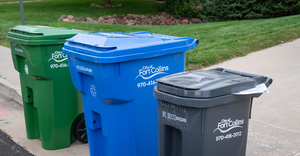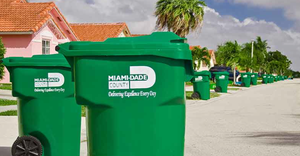New Program Helps Alaska Communities Recycle E-Waste, Batteries
A new e-waste recycling initiative in Alaska is reporting that its organizers have collected and recycled more than 145 pounds of lead-acid batteries from 45 communities last year.
September 8, 2023

A new e-waste recycling initiative in Alaska is reporting that its organizers have collected and recycled more than 145 pounds of lead-acid batteries from 45 communities last year.
U.S. Sen. Lise Murkowski’s idea, Backhaul Alaska, receives federal grant money from the Bureau of Indian Affairs, Department of Transportation, and the EPA to help remove hazardous waste out of Alaska’s remote communities.
Reilly Kosinski of Zender Environmental, a non-profit that manages the Backhaul program, says that waste management is a challenge across much of Alaska.
“In Alaska many of our small communities are roadless,” Kosinski said. “They might only have access to a barge one or two times a year. And there’s just a lack of infrastructure to deal with waste in the same manner that folks in the Lower 48 do.”
According to Kosinski, Alaska has a special exemption to use Class III landfills, which are sites that are unlines and involve minimal mitigation, which leaves the surrounding area more susceptible. This means that batteries in the site, when they break down, can release toxic lead into the area’s drinking water. Kosinski says that it is common to burn these batteries, which releases chemicals into the air.
“So, it just makes it more important to kind of keep those potentially harmful things from going into the landfill in the first place,” he said.
The Backhaul program teaches locals how to safely consolidate hazardous batteries and other e-waste. The waste is then taken to certified recycling facilities in the Lower 48.
You May Also Like


